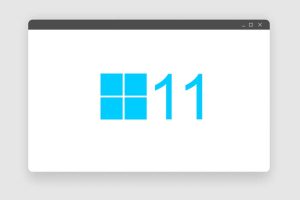
In 2023, borrowers can choose from many private student loan providers. Student loans are regarded as a way to finance their education, and it is also a helpful tool for achieving your academic goals. Among the most reputable businesses are SoFi, Citizens Bank, LendKey, etc. Here we list the top 5 student loan services. Read on to explore the best student loans available.
1. Sallie Mae International Student Loan
Sallie Mae is a publicly traded company and the largest provider of international student loans in the United States, offering a range of education finance options for students and their families.
Pros:
- Wide range of loan options: Sallie Mae offers a variety of loan options, including undergraduate, graduate, and parent loans, allowing borrowers to find the right loan that fits their specific financial needs.
- Flexible repayment terms: Sallie Mae provides borrowers with multiple repayment options, including traditional fixed and variable-rate loans and income-driven repayment plans that can help lower monthly payments.
- Reputation for stability: Sallie Mae has a long history of stability and reliability and has helped millions of students finance their education over the years
Cons:
- High-interest rates: Sallie Mae’s interest rates can be higher than other student loan providers, especially for those with lower credit scores.
- Fees for loan repayment: Sallie Mae may charge fees for loan repayment, such as origination fees, which can add to the overall cost of the loan.
- Limited loan forgiveness options: Sallie Mae does not offer loan forgiveness options for certain professions, such as teachers or public servants, like other student loan providers.
- Variable interest rate loans may increase: Sallie Mae’s variable-rate loans may increase over time, potentially leading to higher monthly payments for borrowers.
Spec
Loan Types: Sallie Mae offers a range of loan options, including undergraduate loans, graduate loans, and parent loans, to help finance education expenses.
Repayment Terms: Borrowers have several repayment options, including traditional fixed and variable-rate student loans and income-driven repayment plans that can lower monthly payments.
Interest Rates: Sallie Mae’s interest rates vary based on the loan type, the creditworthiness of the borrower, and the repayment term. Interest rates can be fixed or variable and may be higher for those with a lower credit score.
Loan Amounts: Sallie Mae offers loan amounts up to the cost of attendance, as determined by the school, minus any other financial aid received.
Review
Sallie Mae is a well-established provider of student loans in the United States, offering a wide range of loan options to help finance education expenses. The company has a reputation for stability and has helped millions of students pay for college over the years. Borrowers can choose from multiple repayment options, including traditional fixed and variable-rate loans and income-driven repayment plans.
2. Citizens Bank Student Loan
Citizens Bank is a regional bank that provides personal and commercial banking services, including checking, savings, and student loan products.
Pros:
- Convenient Locations: Citizens Bank has a vast network of branches and ATMs, making it suitable for customers to access their accounts and manage their finances.
- Online and Mobile Banking: Citizens Bank offers an online platform and mobile app, providing customers with 24/7 access to their accounts and the ability to perform transactions and manage their finances from anywhere.
- Variety of Financial Products: Citizens Bank offers a wide range of financial products, including checking and savings accounts, student loans, mortgages, and investment services, allowing customers to meet all their banking needs in one place.
- Customer Service: Citizens Bank has a dedicated customer service team available to assist customers with any questions or concerns.
Cons:
- Limited Availability: Citizens Bank is only available in select regions, so customers may have limited access to their services depending on where they live.
- Higher Fees: Some of the services offered by Citizens Bank may come with higher fees than other banks, which could be a drawback for customers looking to save money.
- Strict Requirements: To be eligible for some of the financial products Citizens Bank offers, customers may have to meet specific requirements, such as having a minimum balance or good credit history.
- Technology Glitches: Like any financial institution, Citizens Bank may experience glitches that could impact customers’ ability to access their accounts or perform transactions.
Spec
Type of Bank: Citizens Bank is a regional bank that provides personal and commercial banking services.
Services Offered: Citizens Bank offers a wide range of financial products and services, including checking and savings accounts, student loans, mortgages, credit cards, and investment services. (Check U.S. Bank Mortgages review)
Availability: Citizens Bank is available in 11 states in the U.S., including Connecticut, Delaware, Massachusetts, Michigan, New Hampshire, New Jersey, New York, Ohio, Pennsylvania, Rhode Island, and Vermont.
Technology: Citizens Bank offers online and mobile banking, allowing customers to access their accounts and manage their finances from anywhere.
Customer Service: Citizens Bank has a dedicated customer service team available to assist customers with any questions or concerns.
Review
Citizens Bank is a regional bank that provides its customers with a wide range of financial products and services. The bank’s robust online and mobile platform makes it easy for customers to access their accounts and manage their finances from anywhere. Additionally, the bank has a vast network of branches and ATMs, providing customers with convenient access to their accounts.
3. College Ave Student Loan
College Ave refers to a street or road typically running through or near a college or university campus.
Pros:
- Convenient Location: College Ave is usually located in the heart of the campus and close to academic buildings, dormitories, libraries, dining halls, and other student-friendly facilities.
- Rich Student Life: College Ave is often lined with shops, restaurants, cafes, and bars that cater to the needs and interests of students, providing a vibrant and diverse social atmosphere
- Cultural and Intellectual Hub: College Ave is often a hub for artistic and cultural events, debates, discussions, and other intellectual activities that allow students to explore new ideas and perspectives.
Cons:
- High Cost of Living: College Ave can be expensive due to its central location and popularity among students, making it difficult for some to afford housing or food near campus.
- Crowded and Noisy: College Ave can be noisy and congested, especially during peak hours or special events, which can be disruptive to students trying to study or sleep.
- Limited Parking: College Ave can be challenging to navigate by car, with limited parking options and high traffic, making it challenging for students and staff to get around campus.
Spec
Length: College Ave can vary, ranging from a few blocks to several miles, depending on the size of the campus and the surrounding area.
Width: College Ave can range from a single lane to several lanes, with different sections dedicated to vehicular traffic, bicycle lanes, or pedestrian walkways.
Surface: College Ave can be paved with asphalt, concrete, or brick, depending on the age of the road and the design style of the campus.
Landscaping: College Ave may have trees, bushes, and other vegetation along the sides of the road, providing shade, aesthetic appeal, and a sense of greenery to the campus.
Review
College Ave offers competitive rates and flexible repayment options for students and their families. The application process is user-friendly, and the customer service is responsive. However, some users have reported difficulty with student loan disbursement and slow response times. College Ave is a solid choice for college education financing.
4. Ascent Student Loan without Co-signer
An ascent student loan is a private loan program designed to provide financing options for undergraduate and graduate students to help cover the cost of higher education.
Pros:
- Flexible repayment options: Ascent offers several repayment plans, including interest-only, flat payment, and total principal and interest, to help borrowers choose a plan that best fits their budget and financial needs.
- No co-signer required: Ascent international student loans do not require a co-signer, making it easier for students to apply and be approved for a student loan.
- Competitive interest rates: Ascent offers competitive interest rates compared to other private student loan lenders, which can help borrowers save money over the life of the loan.
- No prepayment penalties: Borrowers can make extra payments or pay off the loan in full without incurring any prepayment penalties, helping to reduce the overall cost.
Cons:
- Limited eligibility: Ascent student loans are only available to undergraduate and graduate students, excluding those pursuing doctoral degrees or other specialized programs.
- No loan forgiveness options: Ascent does not offer loan forgiveness programs for those who work in public service or other eligible careers.
- Credit requirements: Borrowers must have good to excellent credit or a co-signer with strong credit to be approved for an Ascent student loan.
- Higher interest rates for some borrowers: While Ascent offers competitive interest rates, those with lower credit scores or who do not have a co-signer may be offered higher interest rates.
Spec
Loan Amount: Ascent student loans range from $2,000 to the total cost of attendance, as determined by the school.
Loan Terms: Ascent offers loan terms ranging from 5 to 15 years.
Repayment Options: Ascent offers repayment options, including interest-only, flat payment, and total principal and interest.
Fees: Ascent does not charge any application, origination, disbursement, or prepayment fees.
Deferment Options: Ascent does not offer loan deferment options.
Review
Ascent student loans are a viable option for undergraduate and graduate students who need financing to cover the cost of higher education. The student loans offer competitive interest rates, flexible repayment options, and no cosigner requirement. Additionally, the funds are disbursed directly to the school, ensuring that the money is used for education expenses. However, there are some drawbacks to consider, such as limited eligibility and no loan forgiveness or deferment options. Borrowers with lower credit scores or those without a co-signer may also be offered higher interest rates.
5. CommonBond Student Loan
CommonBond is a financial company offering customers student loan refinancing and personal loans.
Pros:
- Competitive interest rates: CommonBond offers some of the lowest interest rates in the market, which can result in significant savings for borrowers.
- Flexible repayment options: CommonBond offers various repayment options, including traditional repayment, interest-only repayment, and deferred repayment, making it easier for borrowers to find a plan that fits their financial needs.
- Social responsibility: CommonBond is committed to making a positive impact in the world and has a unique “1-for-1” program where it funds the education of a child in need for every loan it originates.
Cons:
- Limited eligibility: To qualify for a student loan with CommonBond, borrowers must have good credit and a stable income. This can limit some borrowers’ eligibility who may need financing the most.
- No in-school repayment: CommonBond only offers to refinance student loans, so there are no options for in-school repayment or loan consolidation for current students.
- No cosigner release option: CommonBond does not offer a co-signer release option, meaning that if a borrower has a co-signer on their loan, the co-signer will remain on the loan for the entire term, even if the borrower can demonstrate financial stability.
Spec
Interest rates: CommonBond offers some of the lowest interest rates in the market, starting at 2.80% for student loan refinancing and 5.50% for personal loans.
Loan amounts: For student loan refinancing, CommonBond offers loans from $5,000 to $500,000, while for personal loans, it offers loans from $2,000 to $35,000.
Repayment terms: CommonBond offers a range of repayment terms for student loan refinancing and personal loans, including 5, 7, 10, 15, and 20-year periods.
Eligibility: To be eligible for a loan with CommonBond, borrowers must have good credit and a stable income. Borrowers must also be U.S. citizens or permanent residents and have a minimum credit score of 660.
Review
CommonBond is an excellent option for those looking to refinance their student loans or take out a personal loan. The company offers competitive interest rates, flexible repayment options, and a simple application process. However, it is essential to note that not everyone will be eligible for a loan with CommonBond due to its requirements for good credit and a stable income. Overall, if you are a qualified borrower, CommonBond is an excellent choice for financing.
Conclusion
In conclusion, private student loans can be a valuable source of funding for students and their families. The best private student loan companies of 2023 offer competitive interest rates, flexible repayment options, and a range of other benefits. When choosing a student loan(Read more about Payoff Personal Loan), it’s important to compare multiple lenders and carefully consider the terms and conditions to find the best option for your needs. While private student loans can be a good option, it’s important to remember that they are a form of debt that must be repaid with interest. Hence, it’s important to borrow only what is necessary and to plan carefully for repayment.











